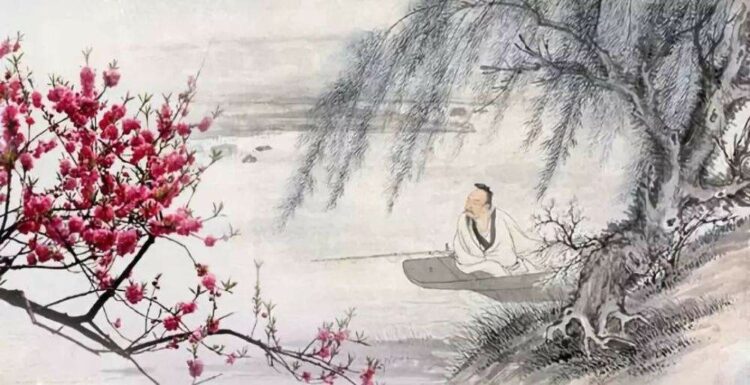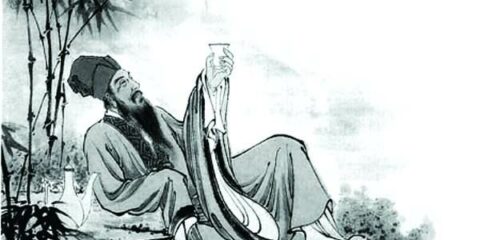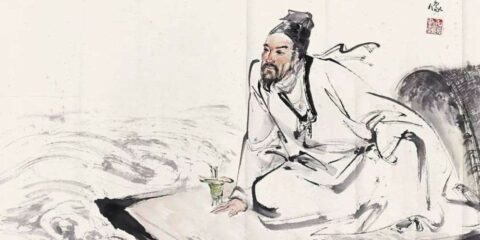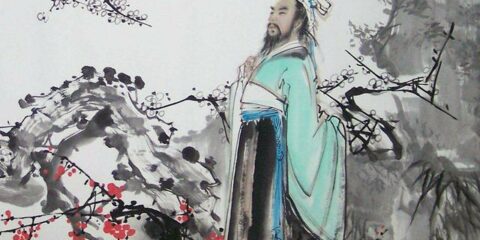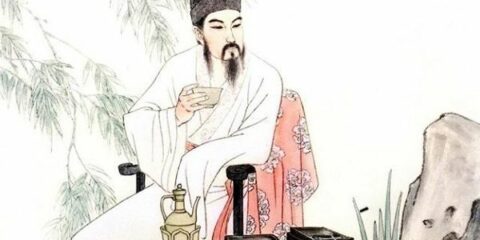蝶恋花
Butterflies in Love with Flowers
柳永 Liu Yong
伫倚危楼风细细。望极春愁,黯黯生天际。
草色烟光残照里,无言谁会凭阑意。
I lean alone on balcony in light, light breeze;
As far as the eye sees,
On the horizon dark parting grief grows unseen.
In fading sunlight rises smoke over grass green.
Who understands why mutely on the rails lean?
拟把疏狂图一醉。对酒当歌,强乐还无味。
衣带渐宽终不悔,为伊消得人憔悴。
I’d drown in wine my parting grief;
Chanting before the cup, strained wirth brings no relief.
I find my gown too large, but I will not regret;
It’s worth while growing languid for my coquette.
——Xu Yuan chong translation
The meaning of poetry:
I leaned for a long time on the railing of a tall building, the breeze brushed my face a tiny bit, looking at the inexhaustible spring sorrow of leaving
Frustrated sorrow rises from the distant and boundless sky. The turquoise grass, drifting and dazzling clouds and mist hidden in the sunset
The sun’s afterglow, silent who understands my mood leaning on the railing.
I intend to get drunk on my debauchery, raise a glass and sing, but I feel that it is meaningless to laugh. I
I am getting thinner and thinner, but I don’t feel remorseful, I would rather be thinner and thinner for her, I am depressed and haggard.
I was alone on a high building, standing on a long leaning rail, a fine spring breeze blowing in the face, looking at the endless spring sorrow, gloomy diffuse sky.
The sky. The green grass, the misty light of smoke in the sunset afterglow, who can understand my silent leaning on the railing of the
I wanted to indulge in a drink.
I wanted to drink to my heart’s content. I was singing with other people, but then I felt that I was not interested in forcing myself to have fun.
I was so tired of my clothes. I’m not sorry that I’m losing weight and my clothes are loose, but I’d rather pine away for her.
The poet’s introduction:
Liu Yong (?- c.1053), once known as Sanbian, or Jingzhuang (courtesy
name), renamed himself as Yong, or Qiqing (courtesy name) later in
his life. A native of Chong’an (present-day Wuyishan City, Fujian
Province), he ranked seventh in his family. He passed the imperial
examination during the Jingyou period in the Song Dynasty and was
appointed as Tuntian Yuanwailang (‘deputy officer in charge of
reclaiming wasteland’). Therefore, he was also called Liu Qi (Qi
means seven) or Liu Tuntian. He was especially good at creating
manci, a type of Song lyrics accompanied by slow musical rhythm. Due
to their harmonious and mild rhyme, his lyrics are easy to read, with the scenery depicted and the emotions expressed in perfect harmony.

